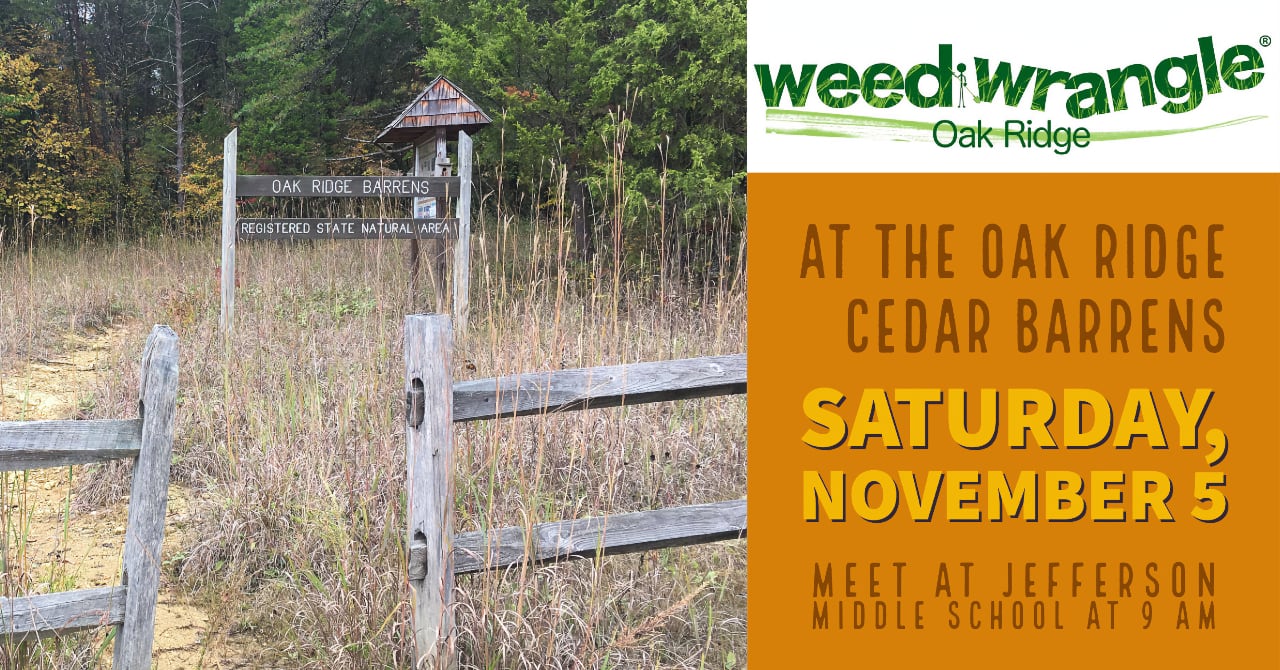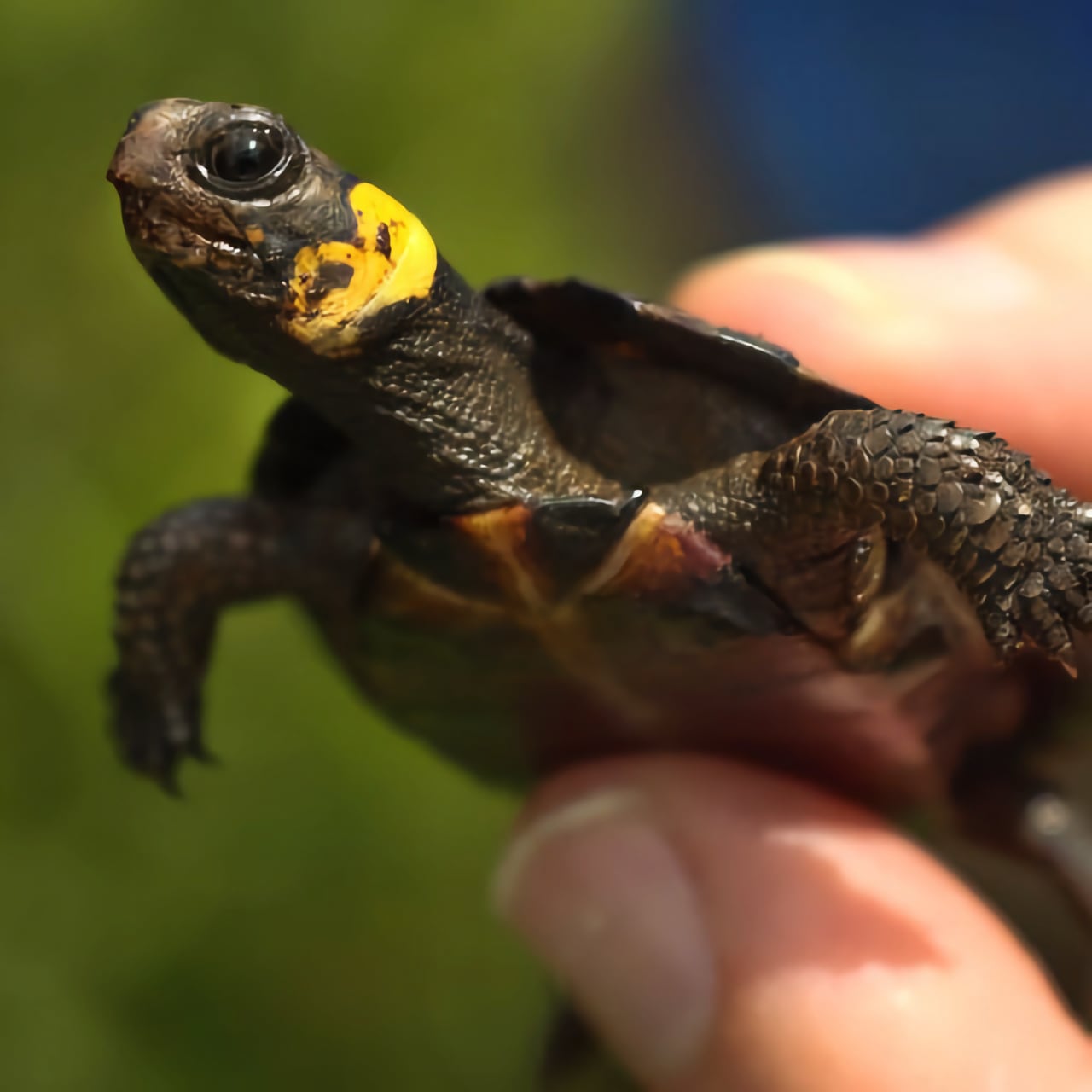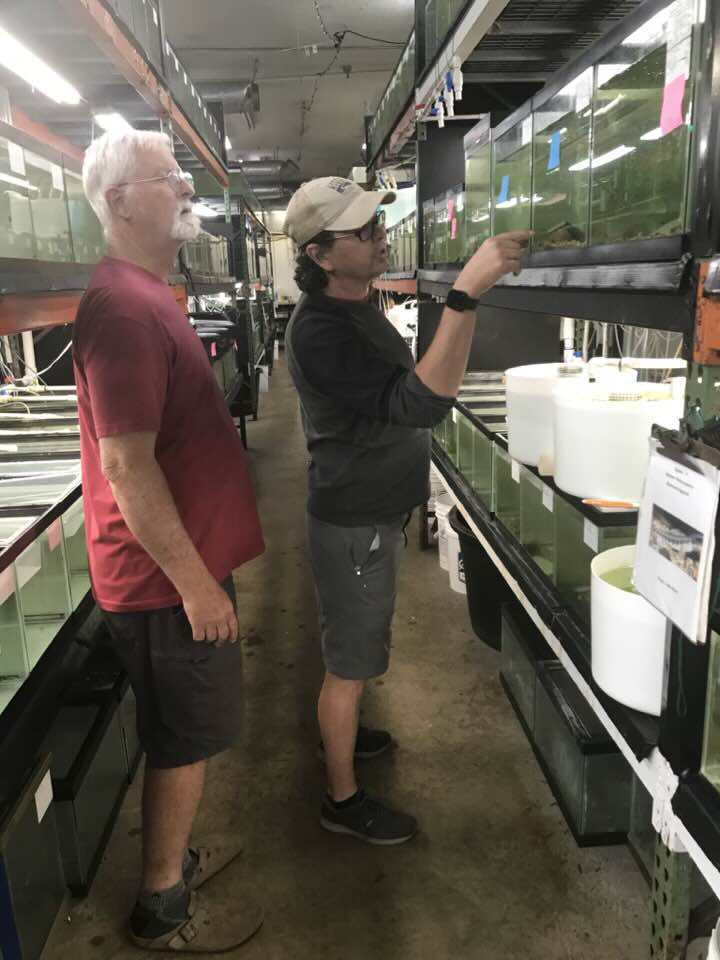The event is sponsored in part by Waste Management, US Bank, McCarty Holsaple McCarty, First Neighborhoods Realty, Fox & Fogarty, East Tennessee Community Design Center, and KBrew.
Sustainability (497)
Children categories

Sustainable Development Goals (911)
The Sustainable Development Goals are a universal call to action to end poverty, protect the planet and improve the lives and prospects of everyone, everywhere. The seventeen Sustaiable Development Goals (SDG) were adopted by all UN Member States in 2015, as part of the 2030 Agenda for Sustainable Development which set out a 15-year plan to achieve the Goals.
Celebrating Black joy in nature, stitched with all our stories
Written by Tara Lohan Outdoor Afro founder Rue Mapp. Bethanie Hines via Revelator
Outdoor Afro founder Rue Mapp. Bethanie Hines via Revelator
Black people like nature, too. But you wouldn’t know it from looking at outdoor magazines before Outdoor Afro got started.
This story was originally published by The Revelator. There are Southeastern chapters of Outdoor Afro, including Knoxville.
If time and money weren’t an issue, what would you do?
That’s what Rue Mapp’s mentor asked her as she faced the completion of her college degree and an uncertain job market.
“I’d probably start a website to reconnect Black people to the outdoors,” Mapp replied, a story she recounts in her new book Nature Swagger. Soon after that she launched the blog Outdoor Afro, which began with stories of her own experiences in nature. It was inspired not just by her own love of the outdoors, but of a desire to increase the visibility of Black people enjoying those spaces.
UT prof: Dung beetle mothers protect their offspring from a warming world by digging deeper
Written by Kimberly S. SheldonResearch from Kimberly Sheldon at the University of Tennessee suggests insect behavior is adjusting for climate change
![]() If the TV series “Dirty Jobs” covered animals as well as humans, it would probably start with dung beetles. These hardworking critters are among the insect world’s most important recyclers. They eat and bury manure from many other species, recycling nutrients and improving soil as they go.
If the TV series “Dirty Jobs” covered animals as well as humans, it would probably start with dung beetles. These hardworking critters are among the insect world’s most important recyclers. They eat and bury manure from many other species, recycling nutrients and improving soil as they go.
Dung beetles are found on every continent except Antarctica, in forests, grasslands, prairies and deserts. And now, like many other species, they are coping with the effects of climate change.
I am an ecologist who has spent nearly 20 years studying dung beetles. My research spans tropical and temperate ecosystems, and focuses on how these beneficial animals respond to temperature changes.
- dung beetle
- kimberly sheldon ut
- how will insect adjust to climate change
- climate change insect
- the conversation
- body temperature
- nesting behavior
- climate change
- manure
- nutrient cycling
- greenhouse gas emission
- brood ball
- bullheaded dung beetle
- onthophagus taurus
- metamorphosis
- offspring survival
- temperature variability
- rainbow scarab
- phanaeus vindex
- soil amelioration
- soil temperture profile
- reproductive success
- global warming
Silent Spring Revolution: The Dawn of the Climate Change Movement
Written by Douglas BrinkleyWhiskey business: Help UT save white oaks for your liquor drinks
Written by Ben Pounds
UT forestry efforts benefit whiskey and ecological chasers
KNOXVILLE — Volunteers, distilleries and two universities came together this fall to collect white oak acorns to ensure the survival of the species for commercial and ecological purposes.
It was a key part of a conservation effort started by distilleries worried about the future of oak barrels and casks used to age whiskey and bourbon.
It’s about more than that though, as white oaks have many uses not just for people but for an estimated 2,000 other species, including bats, birds, turkeys, deer, rabbits and hundreds of butterflies and moths. But because the trees are slow to grow, they may be at risk, especially as the region grapples with the uncertain outcomes of climate change.
Don’t Let Factory Farms Undermine the Organic Label
Written by The Cornucopia InstituteTell the USDA to implement the Organic Livestock and Poultry Standards rule soon — your voice is needed by midnight ET on November 10, 2022
The proposed Organic Livestock and Poultry Standards (OLPS) rule requires that all poultry receive legitimate outdoor access. This move comes after successive USDA delays and in spite of massive public comment urging the implementation of the previous organic livestock update — withdrawn despite over 40,000 comments in favor of better organic livestock standards. Read the Cornucopia Institute’s complete analysis of how we got to this moment.
Yes, It’s little and it’s late! — But neither too little nor too late to make an important difference
Cornucopia has called out factory-organic poultry operations for over a decade. Instead of dustbathing and cavorting in the sunlight, industrial organic hens are crammed into massive barns with screened porches.
The OLPS specifies the amount of outdoor space required for poultry production and improves some management practices for all organic livestock. Questions remain: How soon must existing operations comply?
How long will factory-organic producers be allowed to deceive you by labeling their eggs as organic?
Three ways to stir it up this week in Knoxville
Written by Thomas Fraser “Paying poll tax in a cafeteria.” University of North Texas
“Paying poll tax in a cafeteria.” University of North Texas
Vote. Learn. Participate. Now.
KNOXVILLE — There’s some good vibration in the city this week. Get involved. Get things done.
Vote
Tuesday, Nov. 8 offers you a chance to select candidates for elected offices that might jibe with your thoughts about ways to ensure a healthy future for you and your children.
The ballot in Knox County includes races for state representatives and governor of Tennessee, a local Congressional district race and a proposed state Constitution amendment to reduce union strength. Polls are open from 8 a.m. to 8 p.m.
Here’s a Knoxville sample ballot. City public bus lines will offer free transportation to Knoxville voting sites on Nov. 8, according to a release from Knoxville Transit Authority.
Learn
Mayor Indya Kincannon plans to address the Tuesday, Nov. 8 opening session of an expansive alternative fuels conference centered at the University of Tennessee.
The Tennessee Sustainable Transportation Forum and Exposition runs through Wednesday, Nov. 9.
“The research, technology, planning, and policy developments shared at the Forum & Expo aim to improve transportation efficiency, reduce vehicle emissions, and address the mobility needs of all,” per a release from UT.
“The Forum & Expo speakers and panelists will address topics such as alternative fuels and advanced vehicle technologies; mobility and transportation justice, which includes issues of access to transportation, community displacement, and gentrification in sustainable transportation projects; and the intersections of transportation with public health and emergency response.”
Come kick some knowledge about your inevitable electric whip.
Participate
Keep Knoxville Beautiful leans into some hard issues Thursday at its annual summit, slugged this year as an “Urban Reconnection to Nature.”
Knoxville is a leader in connecting its urban heart to green arteries. This year’s KKB summit will focus on sustainable developments in three states.
“We will hear firsthand from experts in the field about equitable and sustainable parks, tree equity, urban canopy, and the renewal of communities. A local panel will bring these topics home to our city and region,” according to organizers. Doors open at 10:30 a.m. at the East Tennessee History Center on Gay Street and presentations begin at 11 a.m.; attendees should register for the event.
Tell Congress: Support health care for miners with black lung
Written by Appalachian VoicesAsk your representatives to support the Black Lung Benefits Improvement Act!
Coal miners in Appalachia are getting black lung disease at record rates, even as the amount of coal being mined is declining. It’s past time to make sure they get the care they need.
Because they can no longer work, coal miners who get the disease are promised certain benefits, like health care and a living stipend. But current laws and processes make it incredibly challenging for miners and their families to access those benefits. And the current benefit levels are not even sufficient to support the miners who are out of work because of their illness.
Pennsylvania Congressman Matt Cartwright and Senator Bob Casey have introduced a bill to make it easier for miners with black lung to access vital healthcare and financial support. Importantly, the bill would also tie benefit levels to inflation. With inflation rising, benefit levels are increasingly inadequate, and this change is needed urgently.
Ask your representatives to support the Black Lung Benefits Improvement Act!
 A TVA ash pond at Watts Bar ruptured with disastrous consequences in December 2008. Wikipedia
A TVA ash pond at Watts Bar ruptured with disastrous consequences in December 2008. Wikipedia
Report contends coal plant operators are shirking responsibilities on ash cleanup
This story was originally published by Tennessee Lookout.
NASHVILLE — In the wake of major coal ash spills from power plant containment ponds in Tennessee and into the Dan River along the North Carolina and Virginia border, the federal Environmental Protection Agency in 2015 laid out the first federal rules for managing the ash, one of the nation’s largest waste streams, and the toxins it contains.
But more than seven years later, few utilities and other owners responsible for the often unlined pits where billions of tons of ash leach heavy metals and other toxins into groundwater are planning comprehensive cleanups, per a report released this month by a pair of environmental groups.
Help control invasive exotic plants Saturday at Oak Ridge cedar barrens

OAK RIDGE — The Oak Ridge Cedar Barren will again be the site of exotic invasive plant removal on Saturday, Nov. 5 as we conduct our fall cleanup, our third and final cleanup of the year. Located next to Jefferson Middle School in Oak Ridge, the Barren is a joint project of the City of Oak Ridge, State Natural Areas Division, and Tennessee Citizens for Wilderness Planning. The area is one of just a few cedar barrens in East Tennessee, and is subject to invasion by bushy lespedeza, leatherleaf viburnum, privet, autumn olive, mimosa, Nepal grass, multiflora rose, and woody plants that threaten the system’s prairie grasses. Our efforts help to eliminate invasives and other shade-producing plants that prevent the prairie grasses from getting needed sunlight.
Volunteers should meet in the Jefferson Middle School Parking lot at 9 a.m., with sturdy shoes, loppers, gloves, and water. The work session will conclude at noon with a pizza lunch. For more information, contact Tim Bigelow at 865-607-6781 or This email address is being protected from spambots. You need JavaScript enabled to view it..
Hellbender Press reported in detail on last year’s Cedar Barren spring cleanup.
Forward momentum: Growing mountain bike festival features Knoxville trails and ales this weekend
Written by Thomas Fraser The Whip Contest, set for 3 p.m. Saturday at Drop Inn, is a perennial crowd favorite at the annual Appalachian Mountain Bike Club Fall Festival. Courtesy AMBC
The Whip Contest, set for 3 p.m. Saturday at Drop Inn, is a perennial crowd favorite at the annual Appalachian Mountain Bike Club Fall Festival. Courtesy AMBC
With food trucks, demos and contests, this year’s family-friendly bike festival is ready to roll. And they haven’t forgotten about the Vols.
KNOXVILLE — There’s a different kind of homecoming set for this weekend. It doesn’t feature football, but it still involves wheel routes. It’s a celebration of the city’s unique outdoor recreational offerings in an urban center.
The Appalachian Mountain Bike Club, a 650-member posse devoted to the acquisition, maintenance and marketing of regional mountain bike trails for multiple uses, hosts its 13th FREE annual fall festival Nov. 4-6, centered around Baker Creek Preserve and the rest of the Urban Wilderness.
More...
Back to the bog: Zoo Knoxville rears and releases rare bog turtles to stop slide toward extinction
Written by Ben Pounds This baby bog turtle may be the face of a new generation of bog turtles raised by Zoo Knoxville for a return to the wild. Zoo Knoxville
This baby bog turtle may be the face of a new generation of bog turtles raised by Zoo Knoxville for a return to the wild. Zoo Knoxville
Bog turtles raised for resurrection at Zoo Knoxville’s ARC
KNOXVILLE — Zoo visitors might overlook the collection of critters behind a small, unremarkable window. But amid the showier gila monster, reticulated python, king cobra and Cuban crocodiles, there’s a regional species on the brink of extinction that’s worth a closer look.
Behind the glass, tiny juvenile bog turtles poke their heads out from underneath sphagnum moss at Zoo Knoxville’s Clayton Family Amphibian Reptile Conservatory (ARC).They are mostly brown, with splashes of gold on their heads. When they mature, they will move to the Bern Tryon Turtle Propagation Bog just outside. Eventually, the zoo will release the heartiest of the bunch. This process, called head-starting, involves raising the turtles from eggs and feeding them well in captivity so they’ll be bigger and have a better chance to survive after returning to the wild.
Bo Baxter takes helm of the crucial nonprofit Conservation Fisheries
Written by Thomas Fraser Bo Baxter (right) and JR Shute examine one of many tanks hosting native fish species at Conservation Fisheries in this photo taken last year. Thomas Fraser/Hellbender Press
Bo Baxter (right) and JR Shute examine one of many tanks hosting native fish species at Conservation Fisheries in this photo taken last year. Thomas Fraser/Hellbender Press
JR Shute and Pat Rakes declare semi-retirement, hand over operations to Hellbender Press board member
KNOXVILLE — A career biologist with deep experience in Southern Appalachian aquatic systems is the new captain of Conservation Fisheries.
The highly productive and robust nonprofit aims to secure, augment, preserve and protect the aquatic environs of the Southeast, namely through the reintroduction of native fish to areas they once inhabited
Bo Baxter spent 25 years as a conservation biologist at the Tennessee Valley Authority. He became an active board member at Conservation Fisheries, Inc. (CFI) upon his retirement from TVA. He soaked up knowledge of its operations and was named executive director as of Oct. 20. His path comes full circle, as he was one of the first paid staff members at Conservation Fisheries, some three decades ago.
Baxter is a member of the Hellbender Press editorial board.
Beavers mitigate forest fires
 European Beaver Image by Ralf Schick from Pixabay
European Beaver Image by Ralf Schick from Pixabay
NPR: California enlists beavers in battle against climate change
Forest areas with beaver dams are less prone to severe fire damage because of more consistent soil moisture and less extreme air aridity and temperature conditions. Read about it or listen to Randy Simon’s 2-minute beaver podcast on National Public Radio’s Earth Wise web page.
 Low-water challenges on the Mississippi River are evident at Memphis. Dulce Torres Guzman/Tennessee Lookout
Low-water challenges on the Mississippi River are evident at Memphis. Dulce Torres Guzman/Tennessee Lookout
Despite the pump from Appalachian rainforests, the drought-stricken Mississippi River is the lowest it has ever been
This story was originally published by the Tennessee Lookout.
MEMPHIS — John Dodson’s corn, cotton and soybean fields are fewer than 10 miles from the Mississippi River, the key transportation artery for West Tennessee grain farmers. But they might as well be a thousand miles.
Historically low water levels on the river are coming at the worst possible time for him. It’s peak harvest season, but he can’t get his crop to market.
West Tennessee farmers have long relied on proximity to the Mississippi, delivering their crops directly from the field to the river. The ease of access has meant many farmers lack large grain storage silos that farmers in the Midwest and elsewhere rely on.
While drought strangles transportation on the Mississippi, many of these farmers are now being forced to leave crops in the field and pray for rain to fall anywhere and everywhere else but above their harvest-ready crops.